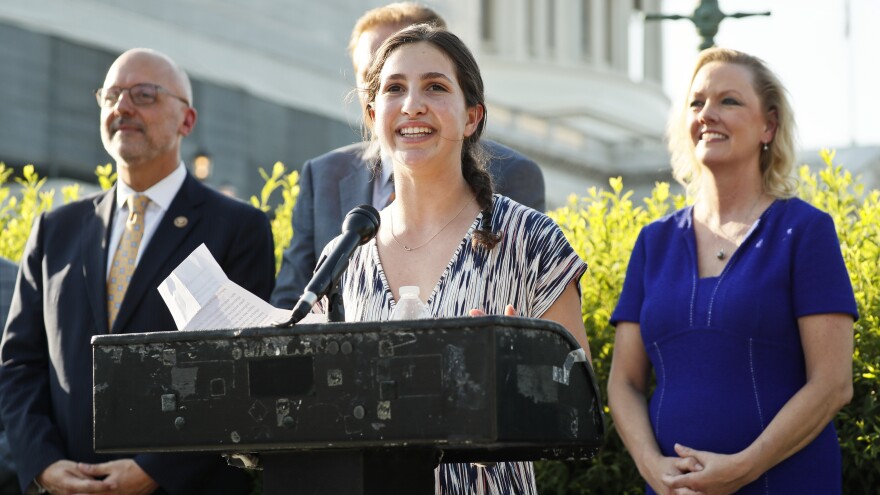The Senate has approved a bill to make severe animal cruelty and torture a federal crime. With the House having passed an identical version of the bill last month, the measure now goes to President Trump, who is expected to sign it into law.
The Preventing Animal Cruelty and Torture Act — the PACT Act — is meant to correct a lingering oversight: When Congress approved the Animal Crush Video Prohibition Act in 2010, it made it illegal to create, sell or distribute an "animal crushing" video. But that law applied only to recordings of cruelty — leaving the actions themselves legal under federal law. The newly passed bill would change that.
The 2010 video ban was a response to a troubling trend, in which perverse videos were posted online showing animals being mistreated and killed, apparently to serve a warped sense of entertainment.
The new legislation would ban animal crushing, which it defines as "conduct in which one or more living non-human mammals, birds, reptiles, or amphibians is purposely crushed, burned, drowned, suffocated, impaled, or otherwise subjected to serious bodily injury."
In addition to preventing horrendous acts against defenseless animals, measures against animal abuse are widely seen as giving police a valuable pathway to intervene in cases where an animal abuser might also harm people. For several years, the FBI has tracked animal abuse in much the same way it tracks arson and assault.
"Our research has shown if somebody is harming an animal, there is a good chance they also are hurting or will hurt a human," John Thompson, then-deputy executive director of the National Sheriffs' Association, said last year when his group put out a guide calling animal cruelty a "gateway."
"If we can see patterns of animal abuse, the odds are that something else is going on," Thompson said.
The bill had strong bipartisan support, with 301 co-sponsors joining Rep. Ted Deutch, D-Fla., who introduced it in the House. When the Senate took up the bill this week, it endorsed it by unanimous consent and without amendment.
"This bill has received so much bipartisan support because Americans care about animal welfare," Deutch said as he discussed the PACT Act in the House. He added, "We form deep relationships with our companion animals, and are rightfully outraged by cases of animal abuse."
Deutch noted that both animal rights activists and numerous police groups are in favor of the legislation.
Rep. Vern Buchanan, R-Fla., a leading co-sponsor of the bill, called it a "a milestone for pet owners and animal lovers across the country" that sets a national precedent in protecting animals from cruelty.
As the Animal Legal Defense Fund notes, existing federal animal protection laws govern only limited cases and don't provide broad safeguards. The 1966 Animal Welfare Act, for instance, mainly applies to zoos, labs and puppy mills. Other laws focus more specifically on transporting livestock or operating slaughterhouses.
As he discussed the measure last month, Deutch gave some of the credit for the bill's success to Sydney Helfand, a Maryland high school student whose Change.org petition in support of the PACT Act has attracted almost 800,000 signatures. When the House voted to adopt the act, Helfand was watching from the gallery.

Up to now, the most comprehensive animal abuse laws in the U.S. have been enacted at the state level. But that has resulted in a patchwork of safety provisions, prompting the ALDF to present annual rankings of the best and worst states for animal protection laws.
While the PACT Act is poised to standardize many protections at the federal level, it also includes exceptions. It doesn't apply to the meat industry, for example, or to cases of accidents and legitimate medical procedures. Other practices, from scientific research to hunting and fishing, also are not covered under the new legislation.
Copyright 2020 NPR. To see more, visit https://www.npr.org.



